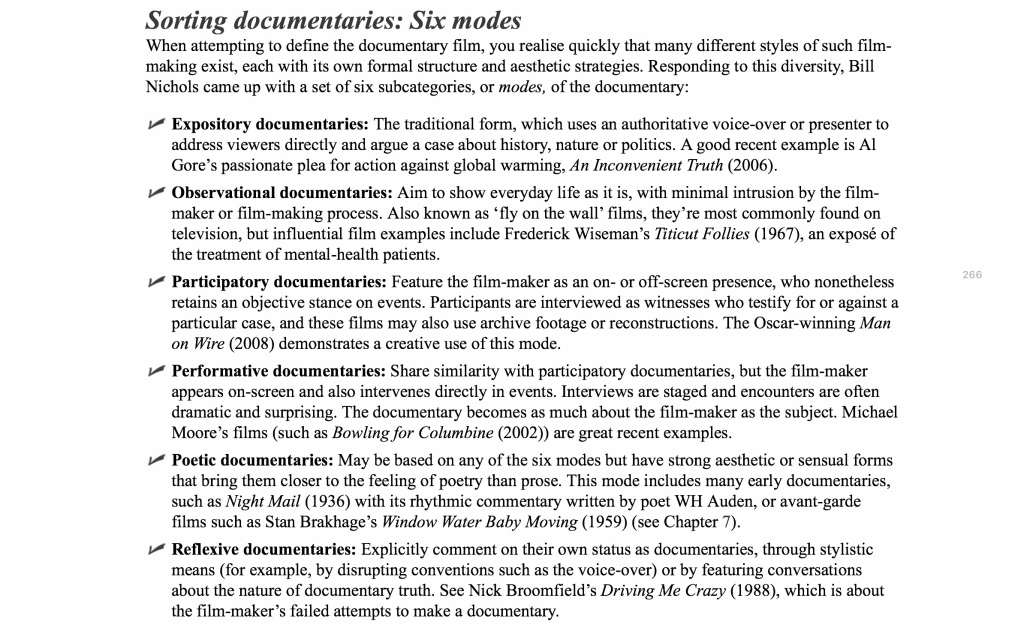Bill Nichols, a documentary theorist, stated that every documentary could be categorised under one of six ‘modes’ of documentary, listed and explained below.

Expository Documentary
An expository documentary is the ‘traditional form’ of a documentary film, setting up a specific point of view or argument about a subject matter. The narrator often addresses the viewer directly, establishing the relationship between what is being projected on screen and the accompanying verbal commentary. Examples of an expository documentary include the works of David Attenborough, such as Planet Earth (2006) as well as the feature-length March of the Penguins (Luc Jacquet, 2005).
Observational Documentary
An observational documentary aims to capture fully authentic, day-to-day life with minimal interruption. Also referred to as a ‘fly on the wall’ documentary, the filmmaker is a neutral observer of events – remaining hidden behind the camera at all times. Examples of an observational documentary include High School (Frederick Wiseman, 1968) and The Beatles: Get Back (Peter Jackson, 2021).
Participatory Documentary
Within a participatory documentary, the filmmaker themselves is directly included within the documentary’s narrative, typically onscreen. Their impact upon the recorded events is acknowledged and the filmmaker personally interacts with the documentary’s subjects, with their personality often shining through in the process. Examples of a participatory documentary include Sherman’s March (Ross McElwee, 1985) and The Danube Exodus (Péter Forgács, 1998).
Performative Documentary
A performative documentary focuses on the filmmaker’s involvement with the specific area of documentation that the film is centered around. The filmmaker often inputs their personal experience with the subject in order to explore the larger truth of the matter at hand. Examples of a performative documentary include Supersize Me (Morgan Spurlock, 2004) and the many documentaries of Louis Theroux.
Poetic Documentary
A poetic documentary utilises avant-garde and experimental techniques to evoke a specific emotion within the viewer, avoiding a typical linear narrative. Examples of a poetic documentary include Fata Morgana (Werner Herzog, 1970) and Tongues Untied (Marlon Riggs, 1989).
Reflexive Documentary
Reflexive documentaries are often extremely meta in nature, acknowledging the format of a documentary itself. Often featuring the filmmaker within the film, a reflexive documentary makes no attempt to explore an outside topic but solely focuses on the act of creating a documentary. Examples of a reflexive documentary include Man With a Movie Camera (Dziga Vertov, 1929) and Chronicle of a Summer (Jean Rouch, Edgar Morin, 1961).